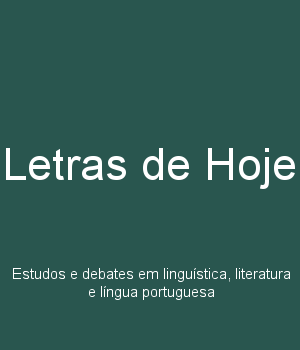Resumo em Português:
Resumo: Julio Cortázar, escritor e intelectual argentino, nasceu na Embaixada da Argentina em Bruxelas, em 26 de agosto de 1914, e faleceu em Paris, no dia 12 de fevereiro de 1984. O conjunto de sua produção inclui poesia, contos, ensaios, romances, entrevistas, músicas e uma vasta correspondência. Seguindo uma leitura sistemática de sua obra, é possível perceber a imbricação entre o processo de criação literária do escritor e o ofício de tradutor que exerceu ao longo de sua vida. O presente trabalho, nesse sentido, busca pontuar a importância da tradução para a formação do escritor Julio Cortázar, por meio de análise de sua própria obra, entrevistas, sobretudo as que foram concedidas a Harss (2012), Prego Gadea (1985), González Bermejo (2002) e Picón Garfield (1996), e demais textos críticos e biográficos, nomeadamente, Herráez (2011), Goloboff (1998) e Maturo (2004). Como instrumento metodológico, selecionamos menções a traduções literárias, referências à tradução ou ao ofício de tradutor e textos nos quais encontramos a opinião de Cortázar sobre o ofício de traduzir, relacionando-os entre si, já que parecem fazer parte do que se poderia chamar de uma “constelação de figuras” que se interligam. Os resultados apontam para a constatação da total relevância do ofício tradutório na vida e na obra do escritor.
Resumo em Inglês:
Abstract: Julio Cortázar, argentine writer and intellectual, was born at the Embassy of Argentine in Brussels on August 26, 1914, and died in Paris on February 12, 1984. His production includes poetry, short stories, essays, novels, interviews, songs and a vast correspondence. Following a systematic reading of his work, it is possible to perceive the interconnections between the writer's process of creation and the job of translator that he practiced throughout his life. The present work, in this sense, seeks to highlight the importance of the translation for the writer Julio Cortázar through an analysis of his own work, interviews, especially those that were granted to Harss (2012), Prego Gadea (1985), González Bermejo (2002) and Picón Garfield (1996), as well as through other critical and biographical texts, namely those by Herráez (2011), Goloboff (1998) and Maturo (2004). As a methodological instrument, we have selected references to literary translations, to the translation or to the job of translator and to texts in which we find Cortázar's opinion on the translation practice, relating them to each other, since they seem to be part of what could be called “constellation of figures” that intertwine. The results point to the realization of the total relevance of the translation practice in the writer's life and work.
